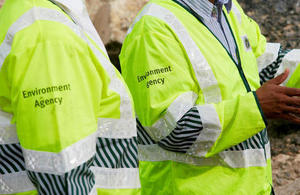The Combatting’s Conflict Stability and Security Fund partners with countries in Latin America to tackle threats including serious organised crime (from drugs to money laundering to environmental crime), grand corruption and instability/conflict.
There are various channels used to move money internationally – whether incoming or outgoing – such as, but not limited to, trade, banking positions, foreign direct investment, and portfolio investment. Each of those will have different relative levels of importance to a given country and including as illicit finance moves between countries. Each country may also experience different levels of vulnerability to the misuse of those channels by a range of actors and whether working within a country or transnationally across the region.
To better understand the vulnerability of the focus countries to illicit financial flows and relevant importance of those flows the CIEP seeks an implementing partner who will be able to analyse such vulnerability and prioritise them according to a matrix with four variables:
| a. Channels used for illicit financial flows (e.g., international trade, foreign direct investment, etc.) |
| b. Volume of those flows |
| c. Counterpart countries where those flows originate or are destined (not restricted to the focus countries) and |
| d. Sectors generating those flows (e.g., classification based on the Harmonised System used for international trade) |
The final analysis should, at a minimum, include in relation to each focus country:
| a. Vulnerability ranking for each of the four variables mentioned above |
| b. Composite ranking incorporating 4.a (Channel), 4.b (Volume) and 4.c (Counterpart) |
| c. Composite ranking as 5.b, plus 4.d (Sector) |
| d. The vulnerability ranking evolution over the past 10 years and their average |
| e. List of actionable recommendations for tackling the identified vulnerabilities/shortfalls and |
| f. Methodology used to assess/quantify each variable |
The CIEP invites Bidders to propose further channels than the four mentioned above and different sectorial classifications.
The focus countries which the programme seeks analysis of are: Colombia, Peru, Panama, Venezuela, Ecuador and the Dominican Republic.
Project bids
The project bid should not exceed GBP150,000 albeit the programme will consider bids proposing compelling activity in excess of that. Bidders will need to submit a proposal with the following requirements:
- Propose methodology. Maximum of three pages describing the approach and operational methodology that will support the proposed delivery solution, providing evidence of the capacity, capability, experience and expertise of the organisation to deliver the proposed solution within the location(s) and context (including the thematic context) specified. Bidders should support their response with evidence from similar/relevant projects already delivered
- Curriculum vitae(s) of those proposed to work on the project (maximum of two pages per person)
- FCDO Project Proposal Template that should include a detailed project plan that includes a clear project timeline and supporting detail; Project Proposal Form above £10k (MS Word Document, 81.6KB) and
- Activity Based Budged template, with a detailed breakdown of cost per activity proposed in the Project Proposal The project must have completed all activity within four months of signing the grant agreement. Activity Based Budget Template (MS Excel Spreadsheet, 26.8KB)
Official Development Assistance
All expenditures must qualify as Official Development Assistance (ODA). ODA is a term created by the Development Assistance Committee of the Organisation for Economic Co-operation and Development to measure aid.
ODA should be undertaken by the official sector (official agencies, including state and local governments, or their executive agencies) and has promotion of economic development and welfare as the main objective.
Priorities
We are seeking an implementer to carry out a series of country-specific analyses wrapped ultimately into a regional analysis.
It is anticipated the majority of the research will be able to be completed from public, open sources although some close-source interviews may also be necessary. As appropriate, Embassies in region may be able to assist the implementer in making contact with key stakeholders in State agencies/institutions and in order to provide a fuller picture of the movement of IFFs within or out of a country.
Albeit some country-specific, sectoral analysis is called for to demonstrate where and how IFFs are generated within focus countries, the report should nonetheless concentrate on cross-border flows and so as to improve understanding of the international dynamics/mechanisms (trade-based money laundering; free-trade zones etc) that allow for IFFs to proliferate across the region.
Scope and scale
The scope and scale of the personnel, resource and time required to complete this project can be set out within an implementer’s bid for activity.
We anticipate a small team (not necessarily located within any particular of the focus countries but with an ability to reach into each) will be necessary and that the analysis can be completed within four months of signing the grant agreement.
Output features
Structure: for the implementer to decide, as long as it responds to the items identified in the specific Overview/Objectives section of this document.
Format: PDF Report.
Language: Spanish/English.
Confidentiality
We anticipate the implementer may be an institution engaged in building awareness around the issues raised by this study.
In principle, the UK Government would not object to the products of this project being made public and, indeed, with implementers including an element of awareness raising around those products as part of overall project design.
In so far as information may be gleaned from sensitive sources though, the parameters of such permission will need to be discussed and agreed with the Embassies at the time of signing a contract/grant.
Private consultancy firms, consortia of multidisciplinary experts or non-profit organisations can participate in this call for bids.
How to bid: general guidance on project proposals
-
Stage 1: Potential implementers are invited to submit a full proposal (template attached) to CSSF.CIEP@fcdo.gov.uk by 29 August 2021, 11.59pm Bogotá time. We will not receive proposals after this deadline.
-
Stage 2: The CIEP Programme team will evaluate all proposals and decide which should move forward to consideration by a technical committee of the programme board due to take place mid-September 2021.
-
Stage 3: The CIEP Programme team will seek to notify the successful bidder before October 2021 and with a view towards activity starting as early as possible in end of October 2021.
Duty of care
The implementer is responsible for the safety and well-being of their personnel and third parties affected by their activities under this grant agreement, including appropriate security arrangements. They will also be responsible for the provision of suitable security arrangements for their domestic and business property.
HMG will share available information with the implementer on security status and developments in country where appropriate.
The implementer is responsible for ensuring appropriate safety and security briefings for all of their personnel working under this contract and ensuring that their personnel register and receive briefing as outlined above.
Travel advice is also available on the FCDO website and the implementer must ensure they (and their personnel) are up to date with the latest position.
Tenderers must develop their tender response on the basis of being fully responsible for Duty of care in line with the details provided above. They must confirm in their tender that:
- they fully accept responsibility for security and duty of care
- they understand the potential risks and have the knowledge and experience to develop an effective risk plan
- they have the capability to manage their duty of care responsibilities throughout the life of the contract
Acceptance of responsibility must be supported with evidence of capability. In providing evidence, Tenderers should consider the following questions:
-
Have you completed an initial assessment of potential risks that demonstrates your knowledge and understanding, and are you satisfied that you understand the risk management implications (not solely relying on information provided by FCDO)?
-
Have you prepared an outline plan that you consider appropriate to manage these risks at this stage (or will you do so if you are awarded the contract) and are you confident/comfortable that you can implement this effectively?
-
Have you an appropriate mechanism in place to monitor risk on a live/on-going basis (or will you put one in place if you are awarded the contract)?
-
Have you ensured or will you ensure that your staff are provided with, and have access to, suitable equipment and will you ensure that this is reviewed and provided on an on-going basis?
-
Have you appropriate systems in place to manage an emergency/incident if one arises?
Gender sensitivity
The FCDO views gender equality and women’s rights as central to promoting peace and stability overseas. This project will take into account any gender-related differences where data is available; consider its contribution to reducing inequality between persons of different gender; and ensure that the project does no harm to any particular gender group.
As such, gender must be fully integrated across all aspects of the intervention. The project design must be underpinned by a gender analysis that is monitored and updated regularly, and that demonstrably shapes the project’s design and implementation, with concrete commitments and action demonstrating the project is suitably privileging gender.
The work plan and project monitoring mechanism must set out how the implementer proposes to adopt a gender-sensitive approach that demonstrates compliance with UK Equality Act 2010. The implementer is expected to mainstream gender in all activities of the project by integrating a gender equality perspective that takes into account the needs of all beneficiaries, men, women and LGBTQ+ people.
Conflict sensitivity
The FCDO requires implementers to take a robust approach to conflict sensitivity. This includes going beyond ‘do no harm’ principles to include maximising opportunities for positive effect on peacebuilding and conflict dynamics, such as improved community relations, enhanced mediation, and good governance
The FCDO also expects implementers to demonstrate an understanding of how the project might affect/is affected by extremist groups and can contribute to addressing drivers and enablers of violent extremism. This requires a well elaborated conflict sensitivity plan, including how conflict sensitivity will be brought into design (including processes, baseline analysis), implementation, monitoring, evaluation and lessons learning, and conflict sensitive communications. It requires the Implementer to have the required team capacities, and an approach to building the capacity of beneficiaries and other stakeholders on conflict sensitivity.

